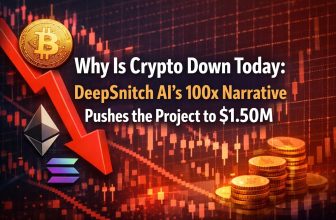
0x is an open, limitless, wide open protocol allowing you to trade ERC20 tokens on the Ethereum blockchain. And now it is being forked, giving birth to a new project called Hydro Protocol.
Why we are forking 0x https://t.co/MrC23EVyEQ
— Tian Li (@tstyle11) December 14, 2018
As the main developer behind the fork, Tian Li, explains it:
Although we are using the term “fork” to give proper credit, we rewrote a large portion of the codebase. We plan to ship a new order schema, an engine capable of true matching, robust market orders, and a fundamentally different liquidity sharing model. The ZRX token will be removed as well, because fee-based tokens create unnecessary friction.
Hydro is a network layer protocol for high performance decentralized exchanges and marketplaces with built-in incentives for coordination.
The Hydro Protocol (HOT) defines the rules for executing decentralized orders and provides the mechanism for order matching. Hydro utilizes ‘Federated Liquidity Pools’ (FLP) to address the issue of liquidity sharing among various decentralized exchanges. The Hydro Protocol Token exists to facilitate and coordinate the formation of shared liquidity pools.
New project will have its own token called HOT with 3 main roles: gain membership in the liquidity pools, governance and to incentivized professional market makers to join the exchange.
Li also highlighted that DDEX will be switching to Hydro protocol:
“DDEX will switch over to Hydro as soon as the new protocol is secured and audited. If the protocol doesn’t deliver, DDEX will be outclassed and quickly become irrelevant.”
What are the goals of 0x project?
0x has discovered many problems though with decentralized exchanges: expensive, slow, iliquid, and can’t be operated with each other, therefore, 0x addresses all these issues by developing a standard protocol that can be applied to all orders which relay off the blockchain. With 0x, the orders go back on the blockchain once settles instead of going back at every transaction, and this way has managed to speed up the whole process eliminating some of the unnecessary transaction fees.







